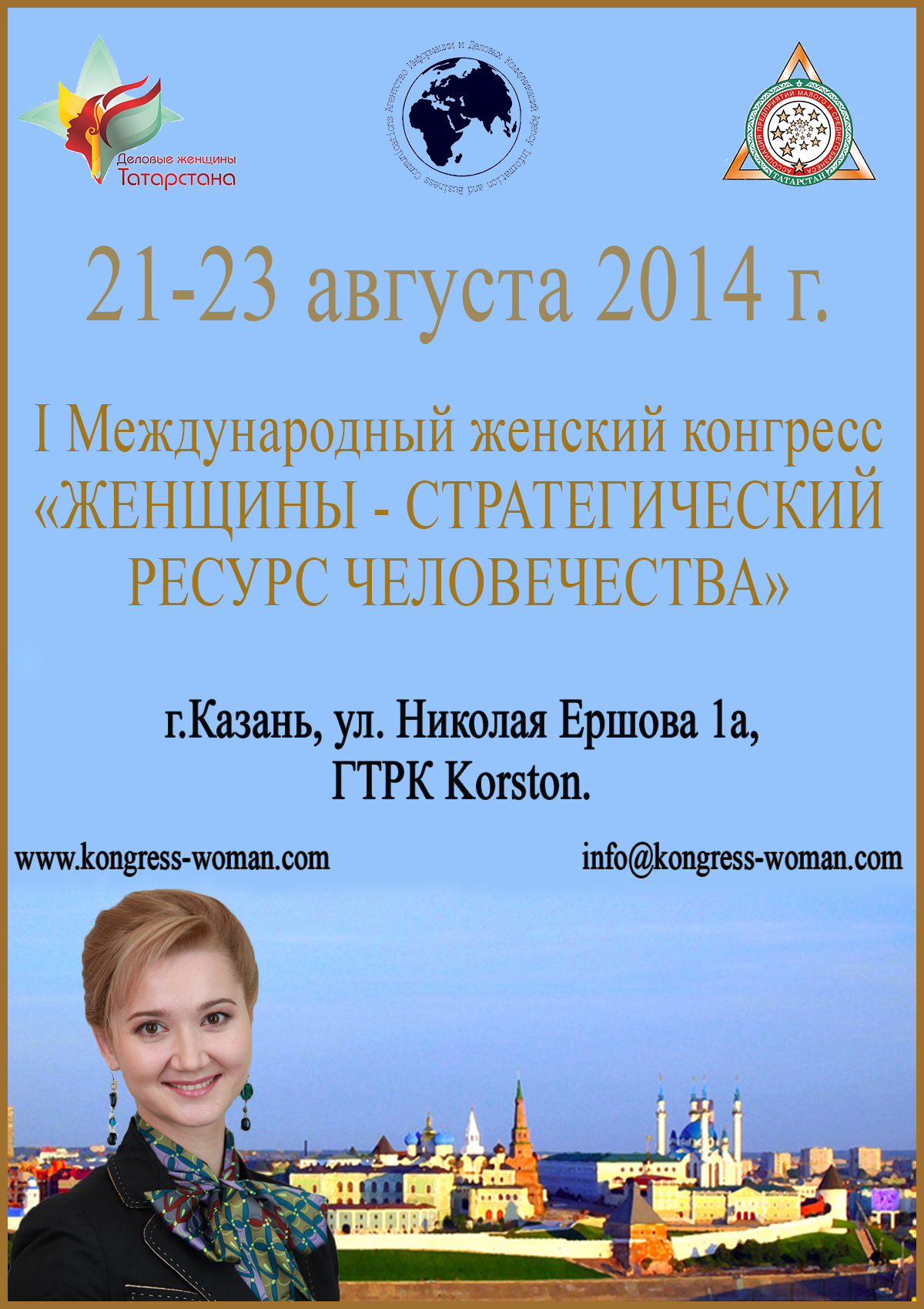International Female Congress «Women are the strategic resource of humanity».
From the 21st to 23rd of August the I International Female Congress “Women are the strategic resource of humanity” will take place in Kazan in the Hotel, Shopping and Entertainment Mall “Korston”.
The main aim of the International Female Congress is in: involving of women from Russia and countries-partners in the process of economics modernization, showing an immense potential that women who work in different areas of business have, joining and consolidation of activity for creation propitious investment climate, formation of atmosphere of creative searching and supporting of projects, demanded by present time.
Other aims are: the world experience generalizing – positive and negative, working out new effective models of communications, to learn how to solve actual economic problems. The Congress will influence positively at further development of partnership and friendship between the Republic of Tatarstan, Russia and foreign partners.
The main subject is “Women are the strategic resource of humanity”.
The International Female Congress is running with a support of the Council of the Federation, State Duma of the Russian Federation, President of Tatarstan, Eurasian Economic Commission and the City Mayor’s Office. The event participants will be women-leaders: heads and top-managers of companies, represented different fields of business, women – deputies of different levels, heads of State government body, heads of funds and public organizations, including female organizations from all around the world: “Women of United Nations”, “UNESCO”, “African Businesswomen Association” and others. Diplomatic missions and interested parties from more than 20 countries have already confirmed their participation in the Congress, including Brazil, China, Sweden, the Great Britain, Benin, Iran, Algeria, Nigeria and others. More than 600 people will take part in the Congress.
The III Forum of Businesswomen of the Republic of Tatarstan will run in the frameworks of the International Female Congress.
Organizers of the International Female Congress are: Tatar Regional Public Organization “Businesswomen of the Republic of Tatarstan”, Agency of Information and Business Communications “AIDK”, Regional Public Organization “Women of Tatarstan” and Association of enterprises of small and middle business of the Republic of Tatarstan.
Venue – Kazan City, theHotel, Shopping and Entertainment Mall “Korston” (1 N.Yershova str.)
All information you can get by phone: + 7 (843) 238-04-84;
e-mail: info@kongress-woman.com, http://www.kongress-woman.com/
Международный женский конгресс “Женщины – стратегический ресурс человечества”.
С 21 по 23 августа 2014 года в городе Казань ГТРК «Корстон» состоится I Международный женский конгресс “Женщины – стратегический ресурс человечества”.
Evènements en Ukraine : une guerre de civilisation ?
 Les derniers développements en Ukraine libérée confèrent une plus grande lisibilité à l’environnement international qui entoure ces évènements. Alors que la situation militaire s’est malheureusement détériorée dans l’Est du pays, dans les officines diplomatiques un embryon de consensus semble se dessiner entre Bruxelles, Moscou et le nouveau président ukrainien.
Les derniers développements en Ukraine libérée confèrent une plus grande lisibilité à l’environnement international qui entoure ces évènements. Alors que la situation militaire s’est malheureusement détériorée dans l’Est du pays, dans les officines diplomatiques un embryon de consensus semble se dessiner entre Bruxelles, Moscou et le nouveau président ukrainien.
Celui-ci, qui tente d’asseoir son pouvoir pour rétablir le calme et l’ordre dans le pays, fait face à deux fronts intérieurs bien différents. Il y a d’abord celui des fédéralistes de l’Est bien entendu, mais également celui des « durs » de l’Ouest et du centre du pays. Au sein de ce second front intérieur on peut citer certains mouvements patriotiques tels que Patrie de Ioulia Timoshenko, la galaxie Svoboda/Pravy Sektor ou les nouveaux roitelets locaux, ces oligarques gouverneurs de régions comme Igor Kolomoïski, l’un des principaux sponsors du Maïdan et de la nouvelle garde nationale ukrainienne qui combat du reste dans l’Est du pays. Continue reading
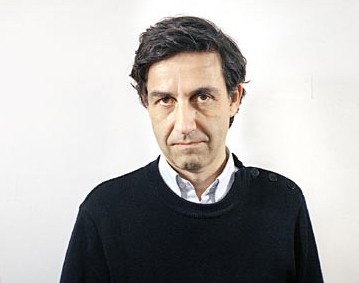
Les Occidentaux agressifs qui veulent imposer leur système de moeurs à la planète doivent savoir qu’ils y sont lourdement minoritaires.
Emmanuel Todd a récemment livré une interview plus que censée a Atlantico sur la Russie et la géopolitique mondiale.
Atlantico : Après avoir un temps cru à l’émergence d’une démocratie modèle en Ukraine, les chancelleries européennes et américaines semblent avoir été prises de court par la diplomatie de Moscou et les mouvements dans l’Est du pays. En quoi l’engagement de l’Occident a-t-il pu reposer sur un malentendu ?
Emmanuel Todd : Lorsque je repense à cette crise, je m’étonne de voir qu’elle ne s’inscrit pas dans la logique qui était en train de se dessiner en Europe jusqu’ici. Le début du XXIe siècle avait été marqué par un rapprochement des “Européens” et des Russes, avec l’établissement de positions communes assez fortes dans des moments de crise. On se souvient de la conférence de Troyes en 2003, où Chirac, Poutine et Schroeder avaient manifesté ensemble leurs refus de l’intervention américaine en Irak. Cet événement laissait l’impression d’un Vieux Continent évoluant globalement vers la paix tandis que l’Amérique de Georges W.
Bush, fidèle à la ligne Brzezinski, restait dans un esprit de confrontation à l’égard de Moscou en s’appuyant sur d’anciens satellites soviétiques, avec les Pays baltes et la Pologne comme partenaires anti-russes privilégiés. Continue reading
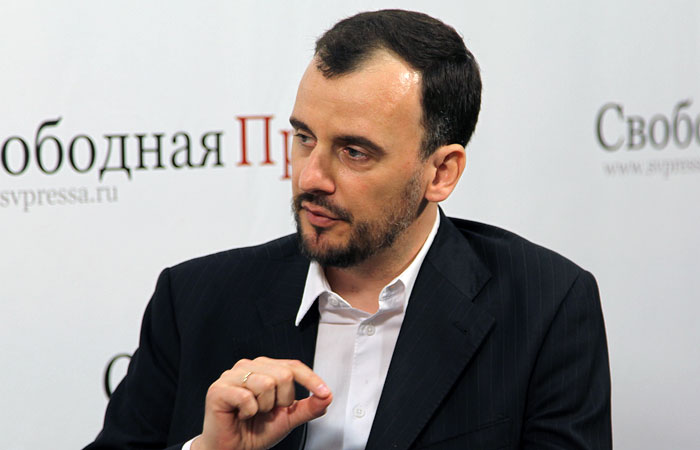
«Я верю в геополитику, а не в заговоры»
Французский аналитик об Украине после выборов 25 мая, национальной идеологии, расколе между США и Европой.
Андрей Полунин: – Добрый день, друзья. С вами «Свободная Пресса», с вами Андрей Полунин. Сегодня наш гость – Александр Латса, аналитик, писатель, француз, который уже пять лет живет в России.
Александр Латса: – Здравствуйте.
А.П.: – Здравствуйте, Александр. Давайте разговор сразу начнем с политической темы, тем более, что вы вчера участвовали в теледебатах на французском канале «Франция 24».Это были первые дебаты, организованные за много времени, и они касались будущего Украины. Скажите, каким оно видится из Европы, каким его видите вы? Вообще, что произойдет после 25 мая, после президентских выборов?
А.Л.: – Я не знаю, что произойдет на Украине после выборов. Думаю, никто пока не знает, что будет здесь. Вопрос в том, эти выборы состоятся или нет? Но видите ли, очень странно, что сегодня в Европе, на Западе считают, эти выборы должны состояться. Хотя мы знаем, что на востоке страны их будет тяжело провести На Украине сейчас нет правительства, вообще нет порядка. В стране идет почти гражданская война. Поэтому мне странно слышать, когда некоторые западные аналитики, политики говорят, что выборы пройдут без проблем. Я как человек, как француз не уверен, что при нынешней ситуации на Украине выбран хороший момент для проведения выборов. В этом мне видится двойной стандарт. Смотрите, когда начинался Майдан, когда здесь строили баррикады, укрепляли здания, когда был открыт огонь по полицейским, все на Западе говорили Януковичу, что он не должен отвечать, что так нельзя, что это народ. А теперь, если идет то же самое на востоке страны, национальная армия или украинская армия открывает огонь по гражданам востока страны, на Западе говорят, нужно навести порядок. Поэтому, мне кажется, это очень большой двойной стандарт. Continue reading
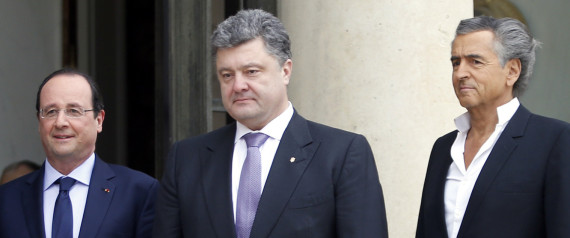
Размышления об «освобожденной» Украине
 Выборы на Украине только что закончились, и весь мир смог констатировать состояние политического невроза, в котором находится эта страна.
Выборы на Украине только что закончились, и весь мир смог констатировать состояние политического невроза, в котором находится эта страна.
Не стало сюрпризом избрание олигарха Порошенко на пост президента страны с 54% голосов в первом туре, результат, эквивалентный тому, что получил Владимир Путин в 2000 году. Олигарх Порошенко, визиты которого во Францию во время Майдана проходили в сопровождении «друга» Бернара-Анри Леви, сумел воспользоваться сложной внутриполитической ситуацией (от Майдана до Крыма и Донбасса), но также удивительной неуклюжестью всех других основных кандидатов, начиная с вдохновительницы оранжевой революции Юлии Тимошенко, которая получила лишь 12,8% голосов.
Во время избирательной кампании прекрасная Юлия вызвала небольшой скандал, утверждая, что нужно «взять в руки оружие и мочить русских собак и их поганого лидера», «поднять весь мир, чтобы даже выжженной земли не осталось от этой проклятой России», «уничтожить (русских) ядерным оружием» или же «взять автомат и пустить пулю в голову этого негодяя (Путина)». К счастью для мира в Европе, и к большому разочарованию самой жесткой части Госдепа, Юлия Тимошенко не убедила украинский народ, несмотря на свою угрозу нового Майдана, направленного на этот раз против вчерашних союзников. Continue reading
Réflexions sur l’Ukraine « libérée »
Les élections en Ukraine viennent de se terminer et le monde entier a pu constater l’état de névrose politique dans lequel se trouve ce pays.
Sans trop de surprises c’est l’oligarque Porochenko qui a été élu président du pays avec 54 % des voix au premier tour, soit un score équivalent à celui obtenu par Vladimir Poutine en 2000. L’oligarque Porochenko, dont les visites en France durant le Maïdan se faisaient systématiquement accompagné de son « ami » Bernard-Henri Lévy a pu bénéficier d’une situation politique interne difficile (Du Maïdan à la Crimée en passant par le Donbass) mais surtout de l’étonnante maladresse de tous les autres principaux candidats, à commencer par l’égérie de la révolution orange, Ioulia Timoshenko, qui n’obtint que 12,8 % des suffrages.
La belle Ioulia avait créé un petit scandale durant la campagne en affirmant qu’il fallait «prendre les armes et aller buter ces chiens de Russes et leur foutu chef », « Soulever le monde entier pour qu’il ne reste même plus un champ brûlé dans cette foutue Russie », «Pulvériser (les Russes) à l’arme atomique » et encore qu’elle pourrait « prendre sur le champ un automatique et mettre une balle dans la tête de ce salopard (de Poutine) ». Heureusement pour la paix en Europe, et visiblement à la grande déception de la fraction la plus dure du département d’Etat, Ioulia Timoshenko n’a pas convaincu le peuple ukrainien, malgré ses menaces de Nouveau Maïdan, cette fois dirigé contre ses alliés d’hier.
Continue readingRUSSISCHE DEMOGRAFIE: WINTER ODER FRÜHLING, ABHÄNGIG DAVON, OB DIE ANALYSE AUS DEM WESTEN ODER AUS RUSSLAND SELBST KOMMT
Am 2. September 2014 veröffentlichte Mascha Gessen, eine Aktivistin für die Rechte sexueller Minderheiten, in der viel zitierten New York Review of Books (NYR) einen Artikel mit dem provokativen Titel Die sterbenden Russen, der mit einer düsteren Winterfotografie illustriert wurde, die 1997 am Bahnhof einer kleinen Stadt südwestlich von Moskau aufgenommen wurde, in Aprelewka. Das Bild zeigt Menschen, von hinten, die in gebeugter Haltung Eisenbahngleise queren. Über dieses negative Bild hinaus ist auch der Denkansatz, der in dem Artikel entwickelt wird, von empörender Voreingenommenheit, einzig, um Putins Politik zu schmähen, dass er im Grunde vor allem zeigt, dass die liberale Opposition der jetzigen russischen Regierung nur über einen knappen Vorrat an Argumenten und Ideen verfügt. In dem Versuch, dem russischen Frühling etwas entgegen zu setzen, bleibt einigen westlichen Demografieexperten nichts als die Lüge.
Der Bevölkerungsrückgang der 90er
Zwischen 1991 und 1999 brach die russische Geburtenrate zusammen und gleichzeitig explodierte die Sterblichkeit, so dass die Bevölkerung des Landes nennenswert zurückging, um fast eine Million Einwohner im Jahr. Damals war Russland in den Händen einer Elite, die entschlossen war, das Land zusammenbrechen zu lassen, in einem Vorgang, den sie als einen wirtschaftlichen Übergang darstellten, der zumindest innerhalb der Grenzen Russlands ausser Kontrolle geraten war. Der Kollaps der Bevölkerung während dieser Periode war etwas, das historisch noch nie geschehen war, schlimmer als das, was das Land während der Kriege gesehen hatte. Dieser demografische Absturz erschien hoffnungslos und Russland schien dazu verdammt, zu verschwinden.
| Indicators of the Russian demography from 1990 to 2013 | |||||
| Year | Births | Deaths | Demographic balance |
Birth rate (1) |
Death rate (2) |
| 1990 | 1 988 858 | 1 655 993 | 332 865 | 13,4 | 1,89 |
| 1991 | 1 794 626 | 1 690 657 | 103 969 | 12,1 | 1,73 |
| 1992 | 1 587 644 | 1 807 441 | -219 797 | 10,7 | 1,55 |
| 1993 | 1 378 983 | 2 129 339 | -750 356 | 9,3 | 1,38 |
| 1994 | 1 408 159 | 2 301 366 | -893 207 | 9,5 | 1,38 |
| 1995 | 1 363 806 | 2 203 811 | -840 005 | 9,2 | 1,34 |
| 1996 | 1 304 638 | 2 082 249 | -777 611 | 8,8 | 1,28 |
| 1997 | 1 259 943 | 2 015 779 | -755 836 | 8,5 | 1,23 |
| 1998 | 1 283 292 | 1 988 744 | -705 452 | 8,7 | 1,24 |
| 1999 | 1 214 689 | 2 144 316 | -929 627 | 8,3 | 1,17 |
| 2000 | 1 266 800 | 2 225 332 | -958 532 | 8,6 | 1,19 |
| 2001 | 1 311 604 | 2 254 856 | -943 252 | 9,0 | 1,22 |
| 2002 | 1 397 000 | 2 332 300 | -935 300 | 9,6 | 1,28 |
| 2003 | 1 483 200 | 2 370 300 | -887 100 | 10,2 | 1,32 |
| 2004 | 1 502 477 | 2 295 402 | -792 925 | 10,4 | 1,34 |
| 2005 | 1 457 376 | 2 303 935 | -846 559 | 10,2 | 1,29 |
| 2006 | 1 479 637 | 2 166 703 | -687 066 | 10,3 | 1,30 |
| 2007 | 1 610 100 | 2 080 400 | -470 300 | 11,3 | 1,41 |
| 2008 | 1 717 500 | 2 081 000 | -363 500 | 12,0 | 1,50 |
| 2009 | 1 764 000 | 2 010 500 | -246 500 | 12,3 | 1,54 |
| 2010 | 1 789 600 | 2 031 000 | -241 400 | 12,5 | 1,56 |
| 2011 | 1 793 828 | 1 925 036 | -131 208 | 12,6 | 1,58 |
| 2012 | 1 896 263 | 1 898 836 | -2 573 | 13,3 | 1,69 |
| 2013 | 1 901 182 | 1 878 269 | 22 913 | 13,1 | 1,70 |
| source : Rosstat | |||||
| (1) The birth rate is the ratio of the annual number of births over the total average population of the year. It is often expressed in parts per thousand (‰) | |||||
| (2) The fertility rate, or fertility index is the ratio of the number of live births in a year over the number of women of reproductive age (15-49 years) | |||||
Text zur Tafel:
Indokatoren russischer Demografie von 1990 bis 2013
Jahr Geburten Todesfälle demografische Bilanz Geburtenrate Sterberate
«Спасение Франции – одна из великих, мировых задач России»
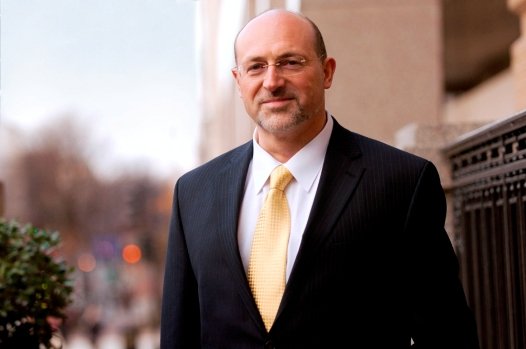 Александр Кириллович Дианин-Хавард – внук первой волны эмиграции, представитель третьего поколения русских, живших за границей. Александр – автор системы Нравственного Лидерства. Он родился и учился в Париже, работал адвокатом в Страсбурге и Хельсинки. С 1994 года читает лекции и проводит семинары по нравственному лидерству в различных странах. С 2007 года живет в Москве. Александр – автор двух книг по лидерству: «Нравственное лидерство» (2008) и «Сотворённый для величия» (2012). Эти книги переведены на 15 языков.
Александр Кириллович Дианин-Хавард – внук первой волны эмиграции, представитель третьего поколения русских, живших за границей. Александр – автор системы Нравственного Лидерства. Он родился и учился в Париже, работал адвокатом в Страсбурге и Хельсинки. С 1994 года читает лекции и проводит семинары по нравственному лидерству в различных странах. С 2007 года живет в Москве. Александр – автор двух книг по лидерству: «Нравственное лидерство» (2008) и «Сотворённый для величия» (2012). Эти книги переведены на 15 языков.
В 2014 г. была издана его последняя книга «Мой русский путь». Это не столько автобиография, сколько книга о Вере, о России, о Франции.
Александр, расскажите нам, как Вы открыли свое призвание преподавателя нравственного лидерства, и вообще что такое нравственное лидерство?
А. Д-Х. : Расскажу свою историю.
В середине 1990-х годов мне предлагают прочесть курс лекций по европейскому праву на французском языке в Хельсинском университете. Многие студенты в нем заинтересованы. Половину лекций я посвящаю истории Евросоюза, чтобы помочь аудитории проникнуть в сердца и умы его отцов-основателей: Робера Шумана, Жана Монне, Конрада Аденауэра, Альчиде де Гаспери. (Отцы–основатели имеют мало общего с тем, что представляет собой Евросоюз сегодня). Мои студенты открываются, высказываются, увлекаются. Многие из них подходят ко мне после занятий, чтобы поблагодарить за то, что я преподаю им вещи, о которых никто в университете не говорит. Continue reading
